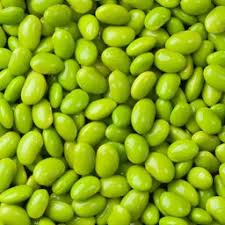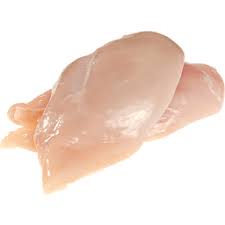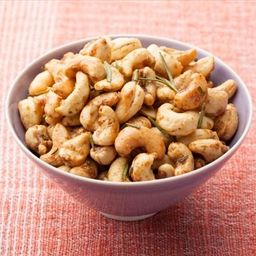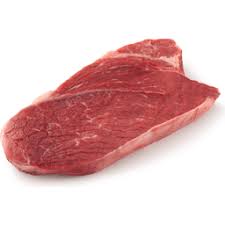A diet filled with meats, nuts and milk is a common sight when you start a gym routine. Simply put, this macronutrient is essential for building muscle mass.
A balanced diet is necessary when you’re aiming to improve fitness and well-being so understanding the best foods to eat always helps.
Protein, fats and carbohydrates are the three macronutrients we need in order to survive however, the body requires a lot of these to complete its daily tasks.
The need for these is even greater when you are in any form of training.
Foods High In Protein
Here is a List of Foods High in Protein:

10. Yogurt, Milk and Soy Milk
Protein in 100g – 7g
1 cup (172g) – 14g
Protein to Calorie Ratio – 1g protein per 9.8 calories
Others: 1 cup skim milk (245g) provides 8g protein, 1 cup soymilk (243g) provides 8g protein

9. Tofu
Protein in 100g – 7g
3oz Slice (85g) – 6g
Protein to Calorie Ratio – 1g protein per 7.4 calories
Others: 1 cup (252g) of firm tofu provides 20g protein. 1 cup of soft tofu (248g) provides 16g protein. 1 cup of tempeh (166g) provides 31g protein.

8. Eggs (especially egg whites)
Protein in 100g – 13g
1 Large Egg (50g) – 6g
Protein to Calorie Ratio – 1g protein per 12 calories
Others: 1 Egg White (33g) provides 4g protein, 1g protein to 4.4 calories. 1 cup of scrambled eggs (220g) provides 22g protein.

7. Beans (mature soy beans)
Protein in 100g – 18g
1 cup (172g) – 29g
Protein to Calorie Ratio – 1g protein per 10.4 calories
Other beans high in protein per cup cooked: Kidney Beans (17g), White Beans (17g), Lima Beans (15g), Fava Beans (14g), Black Beans (15g), Mung Beans (14g).

6. Lean Chicken
Protein in 100g – 18.3g
3oz Fillet (85g) – 16g
Protein to Calorie Ratio – 1g protein per 4.6 calories
More Chicken and Turkey: Chicken Leg – Drumsticks (60g) provides 16g protein. Chicken Thigh (37g) provides 9g protein. 3oz serving of Turkey Breast (85grams) provides 26g protein.

5. Peanut Butter
Protein in 100g – 25g
1 Ounce (28g) – 7g
Protein to Calorie Ratio – 1g protein per 26.9 calories

4. Fish (tuna, salmon, halibut)
Protein in 100g – 20g
Protein to Calorie Ratio – 1g protein per 4.2 calories
Other: Tuna (22g), Salmon (22g), Halibut (22g), Snapper (22g), Perch(21g), Flounder and Sole (21g), Cod (20g), Tilapia (17g)

3. Cheese (non-fat mozzarella)
Protein in 100g – 30g
Protein to Calorie Ratio – 1g protein per 4.4 calories
Other cheese high in protein per ounce(28g): Low-fat Cottage Cheese (5g), Low-fat Swiss Cheese (8g), Low-fat Cheddar (6g), Parmesan (10g), Romano (9g).
*Low or Non-Fat Mozzarella and Cottage Cheese provide the most protein per calorie, full-fat cheeses usually only deliver 1g protein per 20 calories and are less optimal sources of protein.

2. Nuts and Seeds (pumpkin and squash seeds)
Protein in 100g – 30g
Protein to Calorie Ratio – 1g protein per 19.1 calories
Others: Other nuts and seeds high in protein (grams protein per ounce (28g)): Peanuts (7g), Almonds (6g), Pistachios (6g), Sunflower Seeds (6g), Flaxseed (5g), Mixed Nuts (4g).

1. Lean Beef
Protein in 100g – 36g
3oz Slice (85g) – 31g
Protein to Calorie Ratio – 1g protein per 5.3 calories
Others high in protein: T-Bone Steak 3oz (28g) delivers 19g of protein, 1 Piece of Beef Jerky (20g) provides 7g of protein.
Vegetarian Foods High in Protein
A common misconception surrounding protein is that it can only be found in animal products such as milk, meat, and cheese. While many of these foods do indeed contain the high levels of protein which remain vital for the growth of strong bones and repair of tissues, a large percentage of animal products are also high in saturated fats, which increase the risk of heart disease, diabetes, and even some forms of cancer.
Luckily, we can find our protein elsewhere, with the staple appearing prevalent in many vegetarian staples; including but not limited to a variety of our favourite fruits and vegetables church inflatable.
Here are just some of the top vegetarian dishes containing protein, starting with the vegetables, as we look at a selection of both popular and lesser known fruits and vegetables.
Soybeans, 22.2g per cup
If we asked you which vegetable you thought would be highest in protein, would you have picked the humble soybean? Probably not, but these small bitesize snacks in fact contain 22.2g of protein in one cup, equating to 44% of your recommended daily dose. A healthy legume, soybeans in their various forms make up a large part of replacement products created for vegans, primarily due to their high protein content.
Potatoes (mashed, dehydrated granules with milk), 21.8g per cup
Unfortunately, on their own potatoes are not overly filled with protein, and are in fact particularly low in protein when compared with other naturally grown crops. However, the addition of milk to dehydrated potato granules retains the nutrients in the potato, as well as adding the protein derived from the milk; making the common dinner staple far more protein-rich.
Cowpeas, 14.4g per cup
Identified visually by their white colouring with a black “eye” in the middle, cowpeas are one of the most popular sources of protein for vegetarians, and make a great addition to stews and curries.
Edamame, 13.2g per cup
Yet another legume for our list, edamame beans have picked up a reputation as being a super food in recent years, due to their high protein and vitamin content, as well as an apparent ability to lower cholesterol and even reduce the risk of breast cancer. Particularly popular in Asian cuisine.
Tomato Powder, 12.9g per 100g
Tomato powder is made from the tomato skins, seeds and pulp – basically, all the good and nutritional stuff. Made using a dehydrator, tomato powder make a great base for soups, stews and dips – boasting a high protein content as well as dietary fibre and other antioxidants.
Lima Beans, 12.4g per cup
As already discovered, many beans are high in protein and as such are often viewed as a protein food – vital for those on a vegetarian or vegan diet. Lima beans are no different, and are also commonly known as the butter bean or sieve bean – ideal for cooking in a hot stew-like dish or salad.
Winged Bean Tuber, 11.6g per 100g
Resembling the leaves of a lettuce or spinach-type crop, winged beans have more protein than many other root vegetables, with the seeds, leaves and flowers all containing high levels of the nutrient. Interestingly due to their dense nutritional value, winged beans are a common food source found in animal feed for poultry, fish and other livestock.
Celery flakes, 11.3g per 100g
Celery flakes are basically exactly what they sound like – flakes of fresh celery which have been dehydrated. Often used as a seasoning in many dishes, celery flakes provide a protein hit as well as a high carbohydrate boost that provides the body with energy quickly and effectively.
Fruits High In Protein
When we think about fruit and the benefits we get from a tasty fruit salad, protein isn’t usually top of the list. However, there are a number of different fruits – and variations of fruit – that give us that boost of protein our body may be craving. Here are some of the top options available to us:
Orange Juice, frozen from concentrate, 6.3g per cup
A popular breakfast drink across the world, orange juice is renowned for providing a high level of vitamin c that keeps us healthy and plays a central role in our immune system. But did you also know that its protein level is high, particularly derived from concentrate is higher than many fruit drinks?
Rowal fruit, 5.2g per cup
Rowal fruit are large, football-shaped fruits with a soft flesh and seeds which become edible after extensive processing to remove toxic substances. The seed kernels are traditional used in savoury dishes despite their market in the fruit world, and make a popular alternative to coconut in areas around the world where coconut is not available.
Passion Fruit, 5.2g per cup
A fruit we should all recognise; the passion fruit is a common flavour and addition to workout protein powders – as well as the cherry on top of a pornstar martini cocktail. A small tropical fruit grown around the world, passion fruit provides everything from antioxidants to protein and iron.
Florida Avocados, 5.1g per cup
With a slightly different exterior to their Californian counterpart, Florida avocados are larger with more calories – and more protein. A good source of healthy fats and protein for vegetarian or vegan diets, avocados are a great addition to salads and form the popular dip guacamole.
Dehydrated peaches, 4.8g per cup
Typically eaten in small quantities, dried fruits are often high in nutrients due to the concentrated nature of the fruit. Enjoy dehydrated peaches as a small snack, providing a boost of protein, carbohydrate and fibre.
Guava, 4.2g per cup
A popular tropical fruit from Mexico and South America, guava is a sweet fruit which boasts a number of health benefits – including a high level of protein in its naturally fresh state. Unlike many other fruits which require dehydrating to provide that boost of protein, guava makes a great addition to yoghurt and is a tasty drink as well.
Pomegranate, 2.9g per cup
Eaten either on their own or as a topping to desserts, pomegranate seeds provide a range of nutrients all wrapped up in a low-calorie package. Originally grown in North India and subsequently being cultivated around the world, pomegranate is classed as a superfood, with one cup providing you with 6% of your recommended protein for the day.
Jackfruit, 2.5g per cup
An increasingly popular substitute for meat in a number of dishes, jackfruit has a meaty texture and high levels of vitamin B6 – responsible for the metabolism of protein.
What is Protein
Protein is largely made up of amino acids, organic compounds made of nitrogen, carbon, hydrogen sulphur or oxygen and these are the essences of proteins. In turn, proteins are the foundation of muscle mass and so you’ll find yourself eating a lot of protein when you are trying to bulk up.
The more knowledge and awareness about foods high in protein, the better you can care for yourself and your entire family. It goes without saying that protein is very important for your body indeed. Protein is a vital macro nutrient that helps the body grow and function properly.
Everybody is different, there is great debate regarding exactly how much protein the human body requires daily. However, all debate aside, the best course of action is to ensure that you are at least taking enough to meet the current recommended daily intake(RDI) of 46 grams if you are a woman between the ages of 19 to 70. For men between the ages of 19 to 70, 56 grams of protein is recommended daily.
Some also worry about the potential damage to the liver due to excess protein. This is due to the fact that excess protein is converted into energy by the body. However, on the flip side, any deficiency in protein is conducive to muscle atrophy and impaired bodily functioning. Therefore, it encourages you to take the necessary steps to ensure you and your entire family are consuming enough protein daily.
